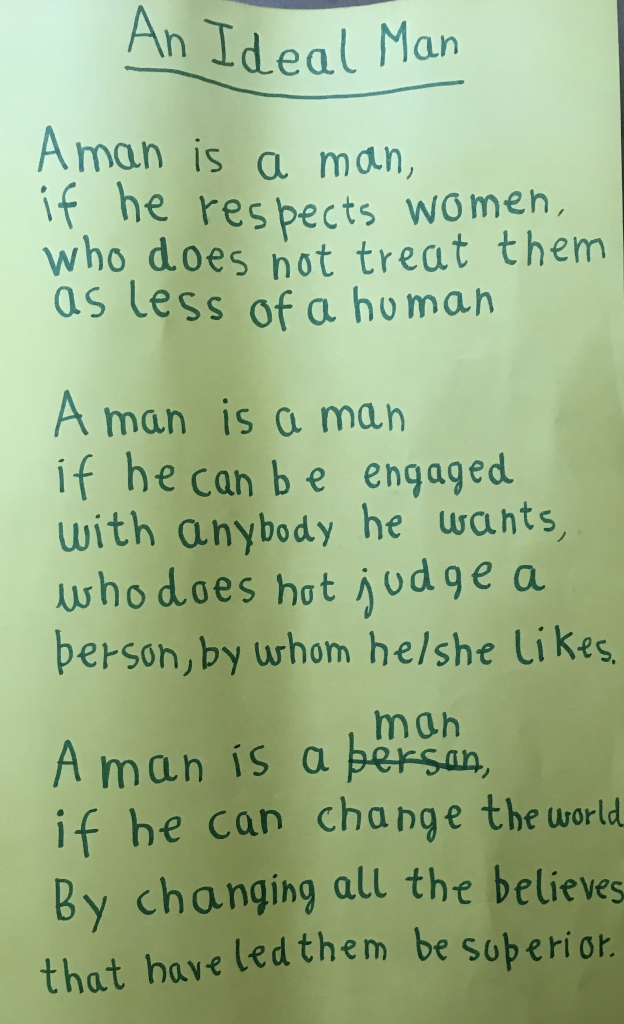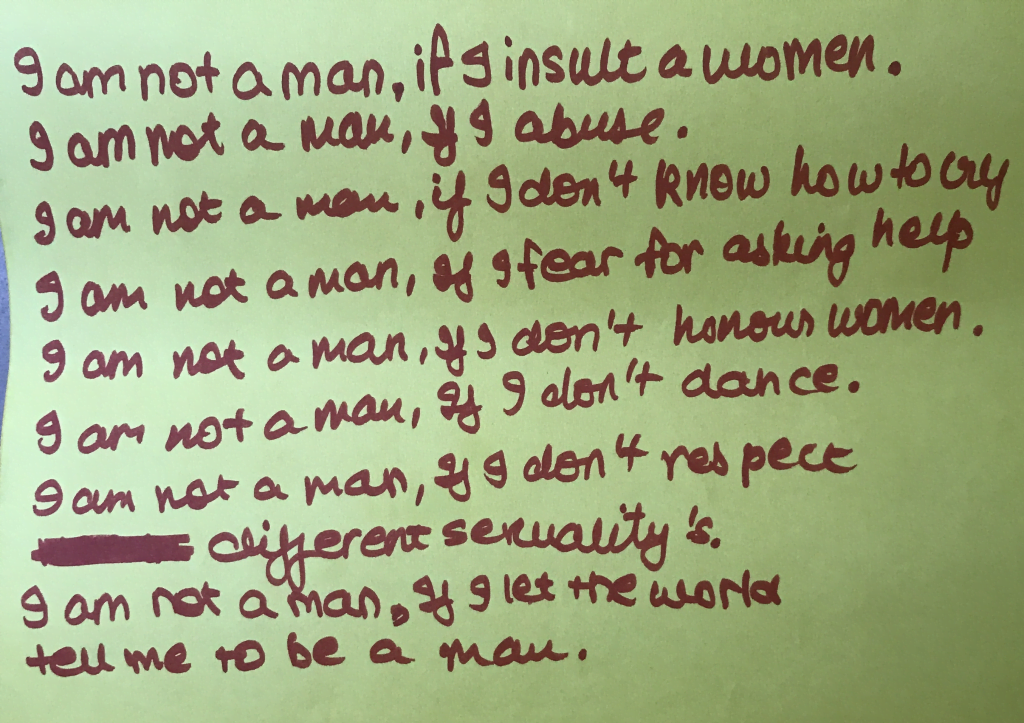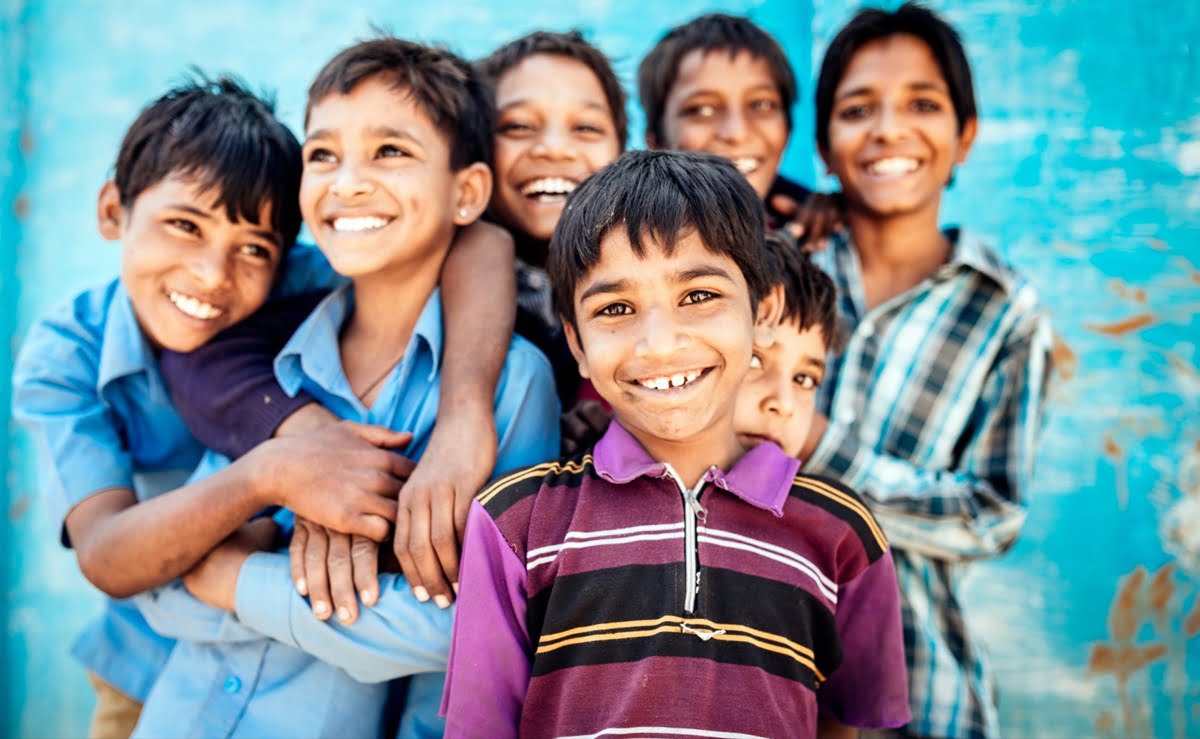As someone who works with young boys on helping them engage in a process of curating their sense of masculinity to their underlying value systems, I was asked a question about what goes into the minds of young boys that causes some of them to take a deviant turn?
As someone who has spent many years working with young human beings, co-written an exhaustive curriculum on identity and gender and facilitated countless workshops with teachers and students I say this with a certain gravity behind it – minds of young boys don’t turn deviant. When we condemn the thinking and actions of young boys with the label “deviance,” we are pushing them to close-up. Their thinking and feeling becomes invisible. We lose the opportunity to engage them in reflective dialogue around the questions they carry. And we compound this problem by superimposing our own judgmental moral code on them, which only ends up further alienating our boys.
When we condemn the thinking and actions of young boys with the label “deviance,” we are pushing them to close-up. Their thinking and feeling becomes invisible. We lose the opportunity to engage them in reflective dialogue around the questions they carry. And we compound this problem by superimposing our own judgmental moral code on them, which only ends up further alienating our boys.
Also read: How Harmful Is Patriarchy To Men And Boys?
In working with hundreds of young boys, they have shared with me the questions they need answers to – they have questions about what it means to be a man, about body insecurities, and how they are supposed to relate to each other. They have questions about what are aspects of themselves and the feelings they’re allowed to express and why do some get taken away as they’re pressured to fulfil the narrow manhood identity. They have questions about relating to women, about how to share their true feelings, about love, friendship, and sex. They have questions about feminism, sexism, using swear words, how can they be an ally and about the human rights movements can they get behind. They are yearning for support in unpacking ideas of courage, bravado and power and the healthy ways of being seen, heard, valued, and validated.
Unfortunately, we as the adults, in our own discomfort and shame, don’t create spaces for young boys to have dialogues around questions they’re curious about and instead we make them feel that their questions are wrong, that they are wrong. So, if anything needs to be classified as the problem, it is the absence of adult reflection around rape culture, and the absence of conscious dialogue spaces led by adults around topics of gender, identity, and violence. I have realised that when they close-up with embarrassment, afraid to ask their questions, their curiosity has not gone away. Their questions remain, but they don’t know whom to turn to. Our adult silence and shame pushes them to seek answers from toxic ideologies.
The vast majority of our boys turn to pornography to learn about sex and confuse violent performance for sexual intimacy. They consume media from far-right speakers who extol the virtues of the hierarchical categorisation of gender and film stereotypes that make harassment seem romantic. They ingest misogynistic lyrics and music videos and begin to not just accept but re-enforce in their own way women as sexual objects and men as pursuers of sexual conquest. They idolise strong-men politicians, playboy athletes, and Instagram stars who degrade women. The gender roles are subconsciously reinforced everywhere in their daily lives from advertisements to how household chores are divided. The overwhelming patriarchal environment is in the air we breathe, bombarding their psyche with subliminal messages, teaching them to value having power over others and causing them to confuse protection, authority, and dominance as love. They are forming their world views by internalising sick messages about manhood and then regurgitating them.
Our boys need dialogue spaces where they unpack for themselves as to what aspects of our social conditioning are harmful by beginning to examine how gender-based violence effects all members on the gender spectrum and myths around it, debunking tropes such as not all men, and engage in literature around feminism and equity. Where they can discover that multiple masculinities exist. They can exercise their own agency and curate their own version of masculinity aligned to evolving and healthy value systems. They need adults to model vulnerability and know they have the space to curate and actualise healthy relationships for themselves.
So, I don’t think their thinking takes a deviant turn. I think all their questions are valid, they are valid and they need holding spaces where they can engage in dialogue and begin crafting their own healthier identities. “Deviant” implies that a child has departed from acceptable norms, but when we truly open our eyes to the cultures in our homes, in our media, our politics, in our religions, the culture of sexism and gender-based violence around us, it’s clear that the young boys are actually acting in accordance to our norms.
“Deviant” implies that a child has departed from acceptable norms, but when we truly open our eyes to the cultures in our homes, in our media, our politics, in our religions, the culture of sexism and gender-based violence around us, it’s clear that the young boys are actually acting in accordance to our norms.
The challenge of having these dialogues can be met and we don’t need to be experts to engage with them. We need to recognise the importance of this space and show up for these dialogues – both at an individual and policy level.
There are many tangible examples that can help you begin your own learning journey and here’s a few things that could help facilitate conversation with young people your life:
- Consume their content with them. I’ve had students share music playlists with me of the latest music they are listening to or the shows they are watching. I make it a point to bring them up in my conversations with them and ask them about the meaning of the lyrics, ask them about the world view that is being projected through the show/character or lyrics and ask them questions around how would things pan out if majority of the people adopted that world view? I make them run thought experiments and check in with their values and adopt a Socratic stance of questioning them. They share deeply and often, and it opens a window for us to talk about the latent meanings being put out.
- bell hooks, the American author, said it best when she said, “Whether we’re talking about race or gender or class, popular culture is where the pedagogy is, it’s where the learning is.” Try not condemning any specific genre but use it to create reflective, meaning making dialogue spaces for your children.
- Highlight and discuss examples of healthy manhood and relationships shown in the media or in our daily lives and re-enforce it by praising it by being concrete about what is good in them.
- As men, create dialogue spaces to talk about how the policing of masculinity we all are guilty of is harmful for everyone and what tangible actions we can take to not police each other’s masculinity.
In my work with students I’ve seen them let their deepest and darkest questions flow, I’ve seen them excavate their latent value systems and show tremendous amounts of compassion, responsibility and resilience against forces of apathy. I’ve seen teachers who were afraid of having these dialogues share how their understanding around how gender affected them in their own life allowed them to ensure that their students were freer to dream about their futures in ways that they weren’t. I’ve seen LGBTQIA+ students who newly feel empowered to write about their experiences of homophobia and transphobia and their friends who are more educated on how to support them.
Also read: Monster Trucks for Boys and Tiaras for Girls: Pointlessly Gendered Products


I’ve seen 15-year old boys standing on stage in front of parents and other classmates read self-written poems about how they want to be vulnerable, how they want to redefine ideas of courage, how they want to honour their full emotionality, how they no longer want to be valued based on how many girls they’ve dated and how they want to be a men who stand up for equality.
Sexism and misogyny by young boys are learnt behaviours and the good thing about recognising these behaviours as learnt is that it can be unlearnt.
Sankalp has been an educator for the last 12 years and is a consultant to schools on social & emotional learning, gender sensitisation & teacher education. He is the co-author of the SEL curriculum ‘Identities in Conflict’ that focuses on identity formation through the lens of gender, religion and class structures. As part of his work he leads workshops for students and teachers and enables them to develop more inclusive, respectful, and freer cultures and concepts of self-identity. He can be found on Instagram and Facebook.
Featured Image Source: Mlenny




